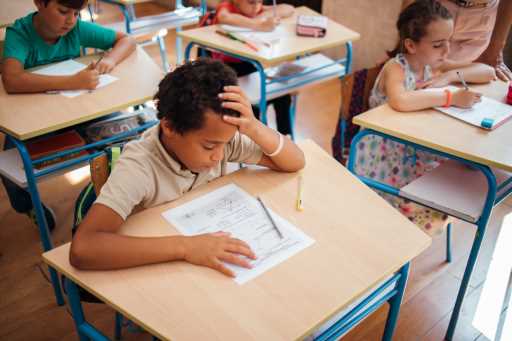Any parent’s worst nightmare is their child getting any kind of injury, but head injuries have some of the worst reputations in healthcare because of their potential long-lasting effects. Hopefully your child never has a bad fall, sports injury, or other accident that causes a concussion and you never need to think about the aftermath of it. But just in case you ever do land in that situation as a parent, there’s some new information you should know, especially as you send your child back to school.
First, what exactly happens when your child gets a concussion? According to Nemours Children’s Health, it’s a brain injury from a fall or hit to the head that causes a change in blood flow or chemical activity in the brain. Symptoms of concussions in kids might involve headaches, dizziness, confusion or difficulty remembering the accident that caused it, or sluggishness.
For the first couple of days after a concussion, your child should rest their brain, with no schoolwork, no sports, and no screentime. Typically, kids are well enough to go back to school and begin learning within five days of a concussion — and new research has found that contrary to popular beliefs, they may be functioning just as well as their classmates at that point.
A new study published in the journal Pediatrics of over 500 kids with concussions between the ages of 8 and 16 reported that a concussion might not negatively impact their IQ, or the measure of intellectual functioning. The research tested the children within the first 48 hours of their concussion, and again within three weeks to three months of the brain injury, and discovered that an IQ test doesn’t show much of a decline in intellectual ability after a concussion.
An IQ test generally evaluates ability to problem solve and process new information and knowledge of facts and vocabulary, the study report explains. Elementary, middle, and high school age kids might have issues with memory, attention span, and processing speed, but those aren’t necessarily evaluated in every IQ test, so that might not be a valid measurement of what’s going on after a concussion.
This doesn’t mean your child won’t have trouble adjusting back to school post-concussion. If this seems to be the case and they’re deviating from their normal patterns of learning, contact your child’s teachers and pediatrician to talk through whether it’s the brain injury or other factors, such as fatigue, anxiety, or depression, affecting their behavior.
Source: Read Full Article

